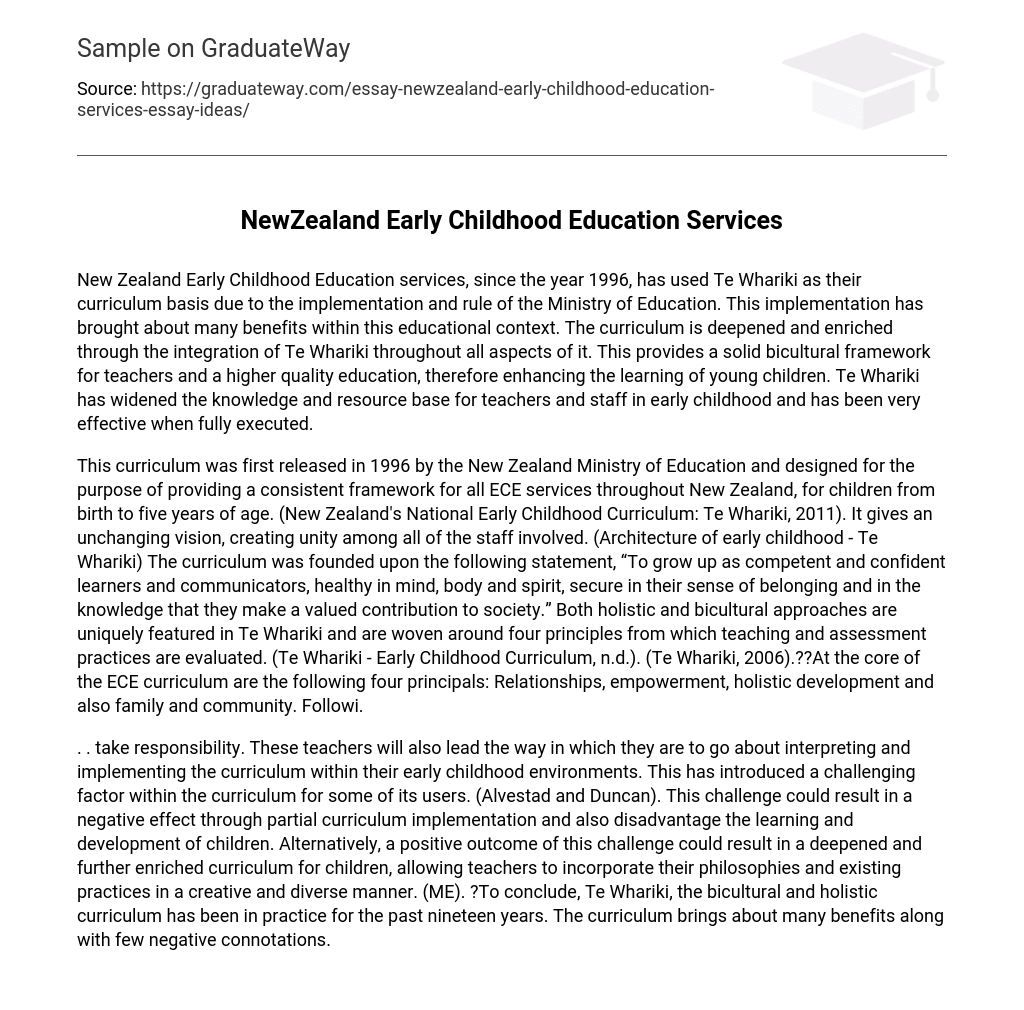Since 1996, New Zealand Early Childhood Education services have adopted Te Whariki as their curriculum basis in compliance with the Ministry of Education. This adoption has resulted in several advantages within the educational context, as the curriculum is enhanced by integrating Te Whariki across all areas. Consequently, this creates a robust bicultural framework for teachers and improves the quality of education, leading to enhanced learning for young children. Moreover, Te Whariki has broadened the knowledge and resources available to early childhood teachers and staff, proving to be highly effective when fully implemented.
The New Zealand Ministry of Education introduced Te Whariki in 1996 as a curriculum for early childhood education (ECE) services. This framework is designed for children aged from birth to five years old and aims to promote unity among ECE staff members. Te Whariki believes that children should grow up as competent and confident learners, communicators, and individuals who are mentally, physically, and spiritually healthy. The curriculum focuses on their sense of belonging and contribution to society. It incorporates holistic and bicultural approaches, revolving around four principles: Relationships, Empowerment, Holistic Development, and Family and Community.< p>
Teachers who take responsibility are the ones who will lead the interpretation and implementation of the curriculum in early childhood environments. However, this has posed a challenge for some users of the curriculum (Alvestad and Duncan). This challenge can potentially lead to partial curriculum implementation and hinder the learning and development of children. On the other hand, it can also result in a more enriched curriculum that incorporates teachers’ philosophies and practices in a creative and diverse manner (ME). In conclusion, Te Whariki, the bicultural and holistic curriculum, has been in practice for nineteen years. While it brings many benefits, there are also a few negative connotations associated with it.





